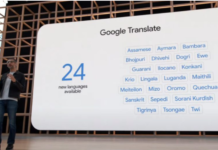Google researchers describe that they have reached Quantum Supremacy
Google states that they have reached a breakthrough in creating a viable quantum computer. The company releases its research paper on the NASA website, which is seen by the Financial Times. The company have achieved “Quantum Supremacy” that outperformed conventional models, which means it has the potential ability to complete a computational task faster.
The research paper named “Quantum supremacy using a programmable superconducting processor” was immediately deleted and Google has yet to confirm the achievement. Moreover, it is also reported that Google’s quantum computers could break encryption, but it will still be years before ready for practical work.
Apart from the ability to complete a computational task faster, it is capable of tackling practical tasks.
What is Quantum Supremacy?
The term “quantum supremacy” was coined in 2011 by John Preskill, professor of Theoretical Physics at the California Institute of Technology. He explained the benefits of using quantum hardware over traditional computers.
By hearing the breakthrough of quantum supremacy, a Caltech professor calls it a ”truly impressive achievement in experimental physics.
Google developed 53-qubit design Sycamore quantum processor to achieve the Quantum Supremacy, that takes about 200 seconds to solve a particular computational problem, whereas traditional supercomputer required approximately 10,000 years to perform the same task.
According to reports, the feat of Quantum Supremacy aimed to reach by the end of 2017, but, the previously designed 72-qubit system proved too difficult to control. Thus, Google developed a 53-qubit design called Sycamore.
Considering the fact of solving the problems in seconds, NASA is collaborating with Google and other companies in a hope to accumulate information for mission scheduling and detecting exoplanets.
Last, we can’t be entirely sure of the paper’s veracity, until the research papers are officially published or announced.
For the latest tech news follow techcresendo on Twitter, Facebook, and LinkedIn















































